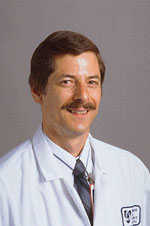What would happen if you stopped breathing in an asthma attack? I already had a few asthma attacks and don’t know how bad it could be
That is a scary thought! If you stopped breathing from an asthma attack, you would pass out. But you don’t want to ever let that happen. So, be... read moreCan asthma be cured?
In 2017 we do not yet have a cure for asthma. We do have very effective medications that keep asthma under control, so that people with asthma can... read moreIf you have asthma, should you be sailing?
If your asthma is out of control – with coughing, wheezing, and shortness of breath – it would not be safe to be sailing alone around the world. ... read moreTeamwork, Perseverance & Asthma
When Rich Wilson was growing up, there were many mis-understandings about asthma. Many people still believed that asthma – with its cough, wheezing,... read moreBiology, Chemistry, Physics and English Literature
I am a doctor, and so to prepare for my medical career I studied (in college) biology, chemistry, and physics, the usual requirements before... read moreQ&A: Dr. Chris Fanta
What are you working on now? I have two exciting asthma-related projects that are currently the focus of my attention, and they are very different... read moreQ&A: What is Asthma?
Q: Anna, Shanghai, China A: “Asthma is a respiratory disease. It manifests itself primarily as inflammation of the airways, and constriction... read more
Dr. Chris Fanta
Partners Asthma Center
“Choosing a career path was not easy for me. In college I enjoyed reading and writing about English Literature. Analyzing the plays of Christopher Marlowe and the novels of Henry James were the challenges that stirred my intellectual passions. But at the same time, I took courses in Biology, Chemistry, and Physics, preparing a path that could lead to a career in medicine, like my father’s. When it was time to choose between the two career paths, I struggled. In the end, the strong sense that I wanted to help others in a tangible way, in their time of need, propelled me to medical school. In retrospect, it was a good choice for me. As for many of my colleagues, medicine has been a “calling” for me more than a job, an all-consuming commitment to try to alleviate suffering, one ailment at a time. I can’t imagine having spent my work-life for the past 40 years in any other way.
“On the other hand, choosing to specialize in Pulmonary Medicine was less a matter of soul-searching than one of chance encounters. The doctors whom I most admired while I was in my hospital-based training were pulmonary specialists. I wanted to be just like them: smart, capable, and well-versed in all aspects of medicine. Pulmonary specialists could treat patients in the intensive care unit, help direct use of mechanical ventilators in patients who needed breathing machines for survival, and at the same time practice outpatient medicine, treating a wide variety of “interesting” medical disorders. And around that time a special, new (in the mid-1970s) procedure was being introduced to look with a lighted camera into people’s airways and lungs, called fiberoptic bronchoscopy; and I was excited to learn how to do it. I was hooked!
“My mentors in Pulmonary Medicine at what was then the Peter Bent Brigham Hospital in Boston, Massachusetts, were renowned experts in asthma. Their research helped to explain how exercise could trigger attacks of asthma in susceptible people, and they unraveled the workings of the lungs in health and disease. It was natural that, like an apprentice learning a trade, I would try to learn everything that I could from them, especially about asthma. Their path led them primarily to research, creating new knowledge and new understanding about asthma. Mine ultimately led more to the care of persons suffering with asthma, committed to helping patients breathe better and fulfill their own passions and goals … like the amazing Rich Wilson.”
